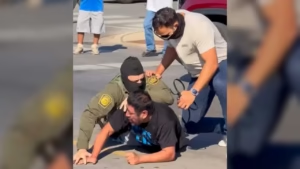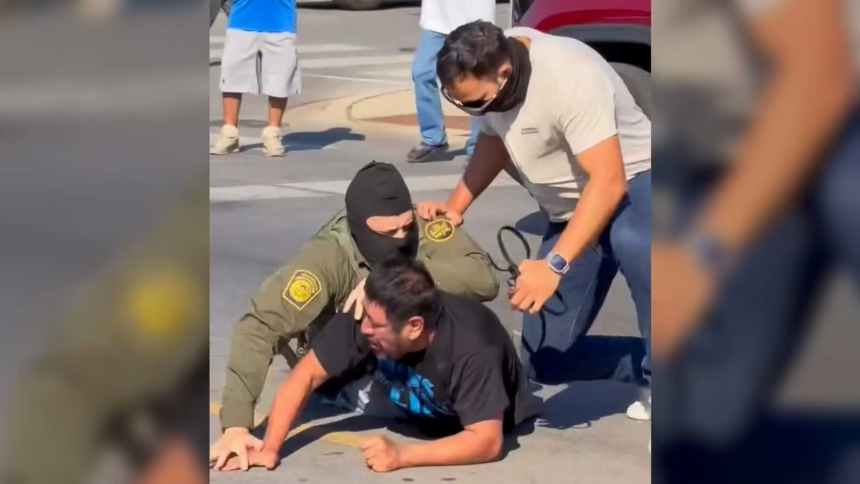DHS agents attempted an arrest in Chicago but withdrew when protesters surrounded them, as shown in viral Instagram videos and a Raw Story report.
Separately, Chicago police officers were reportedly told not to help DHS agents in danger, according to a Fox News journalist.
Multiple Instagram videos from the weekend show two masked agents attempting to detain a man on a busy avenue, as drivers blared horns and shouted, and a crowd gathered.
Drivers and crowds loudly confronted the agents as they attempted the arrest.
The agents tried to restrain their target but eventually released him and sped away as the crowd intensified.
Raw Story characterized the incident as exposing tensions between federal agents and local residents.
Those frictions reportedly reached another flashpoint in Chicago when federal agents requested help from local police following a “ramming incident” and the shooting of an armed woman.
Fox correspondent Bill Melugin said in a post on X that Chicago officers were told not to respond. “Multiple law enforcement sources confirm to @FoxNews that Chicago police officers were instructed by their Chief of Patrol to NOT respond to Border Patrol agents call for help yesterday after they were reportedly surrounded by a large crowd of protesters following a ramming incident & shooting of an armed woman.”
Fox News reported that federal agents found themselves overwhelmed, highlighting a breakdown in federal-municipal cooperation.
In Washington, the framing was starkly different. In a Sunday appearance on Fox News, Homeland Security Secretary Kristi Noem described Chicago as a perpetual conflict zone: “Chicago is a ‘war zone,’” she said, adding that her teams face hostility there: “[It’s a place] where her agents are not welcome to use restrooms.”
From DHS’s perspective, federal use-of-force protocols should take precedence over local considerations, particularly when hostile crowds intervene during arrests.
Despite differing reporting styles, both outlets agree: the street-level confrontation shaped the outcome.
Heavy traffic, bystanders, and the close proximity of onlookers complicated the scene, making it difficult for agents to secure the area.
Persistent horn blasts, shouting, and an influx of onlookers put the agents under pressure, forcing them to retreat rapidly into an unmarked vehicle.
The incidents come as federal operations targeting people in the U.S. unlawfully increase, and cities struggle to balance order, rights, and interagency coordination.
As federal agents press for action, regardless of risk, local departments must weigh the escalation of tensions and the impact on community trust.

Source: Raw Story







